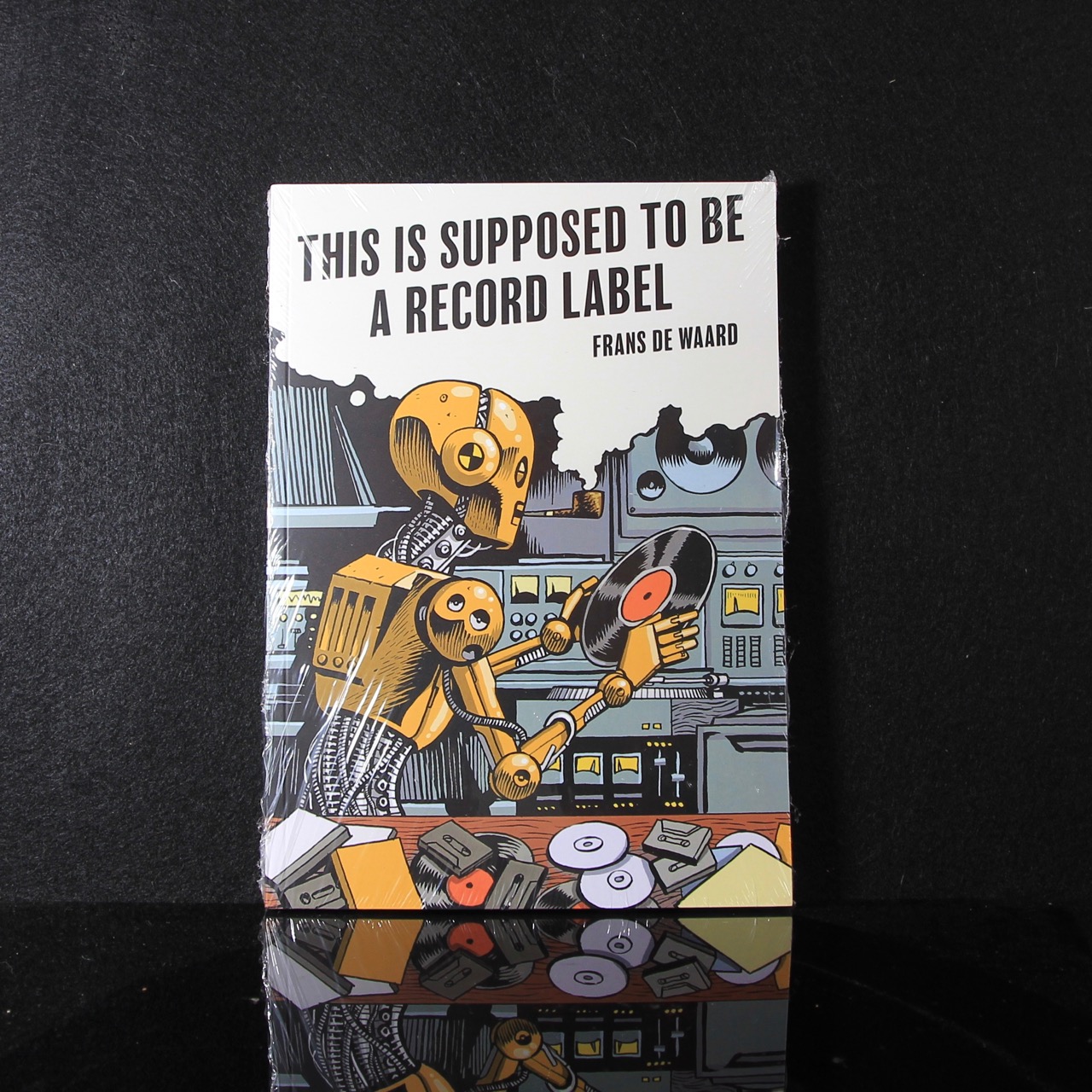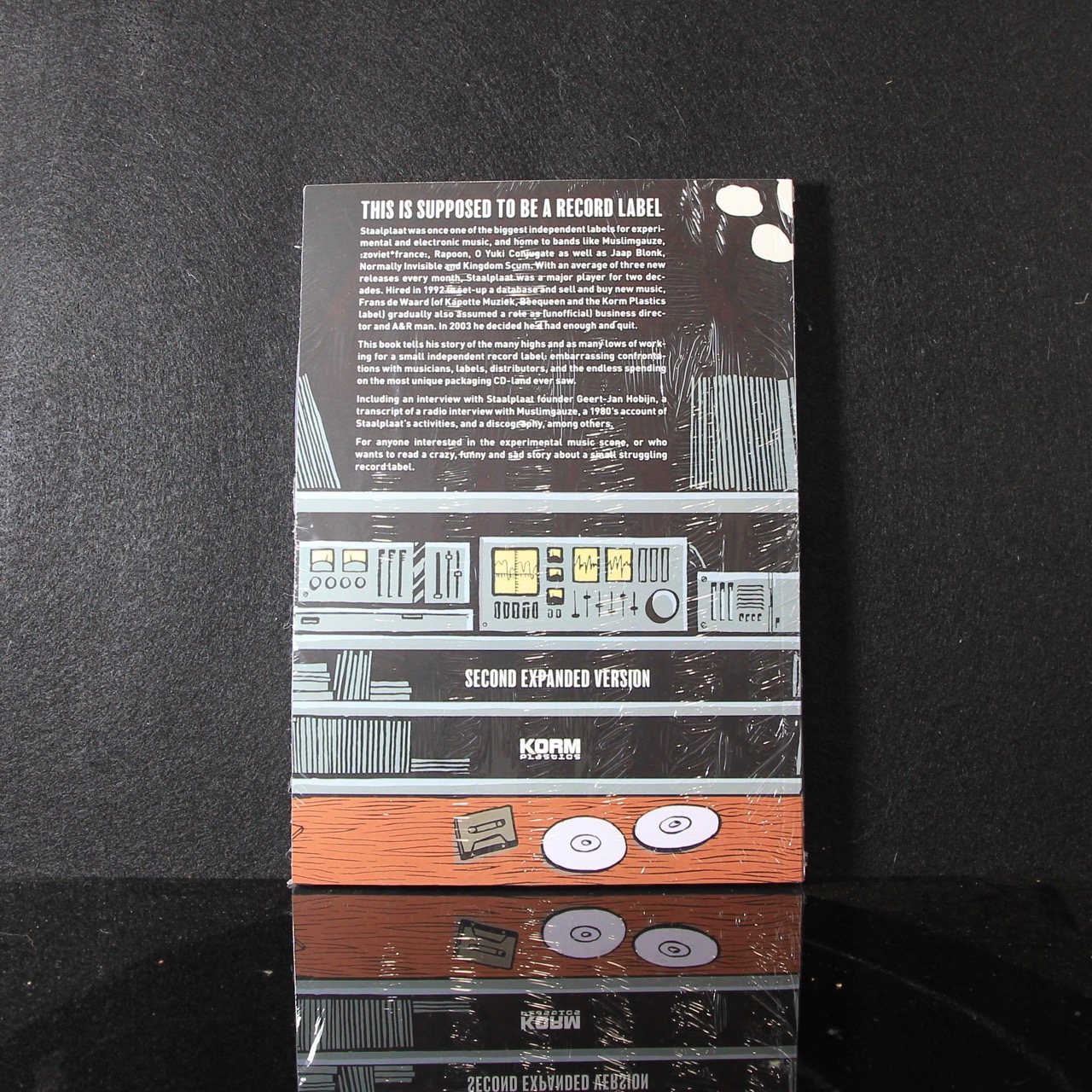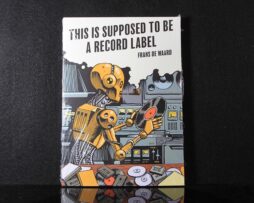Description
Expanded fifth edition, published by Korm Plastics. Paperback.
In 1984 Frans de Waard started his own band, Kapotte Muziek, and his own cassette label, Korm Plastics. A few years later, in 1992, he was asked to work for Staalplaat, then one of the biggest independent labels for experimental and electronic music. Staalplaat was the home for bands like Muslimgauze, :zoviet*france:, Rapoon, O Yuki Conjugate as well as Jaap Blonk, Normally Invisible and Kingdom Scum. With an average of three new releases every month, Staalplaat remained a major player for the next eleven years. Frans was originally hired to set up a database and to sell and buy new music, but over the years also assumed a role as unofficial business director and A&R man, and came to be regarded as the head honcho. In 2003 he’d had enough and decided to quit.
This book tells his story of those eleven years, the many highs and as many lows of working for a small independent record label that also functioned as a shop, mail order, radio programme, news outlet, and concert organiser. It’s about embarrassing confrontations with musicians, labels, distributors, and the endless spending on the most unique packaging CD-Land had ever seen.
This book is not about the 1980s when Staalplaat was part of the local squatter movement, or their post-2000 activities in Berlin. This is Frans’ personal account from within, when Staalplaat was riding its biggest wave in the 1990s.
It includes various appendices, such as an interview with Staalplaat founder Geert-Jan Hobijn, a transcript of a radio interview with Muslimgauze, a 1980’s account of Staalplaat’s activities, and a discography, among others.
There are no images of artists or album covers; instead you can feast your eyes on some previously unpublished, behind-the-scenes photos taken in the office, shop and warehouse.
This book will appeal to everyone with an interest in the experimental music scene, and anyone else who wants to read a crazy, funny and sad story about a small struggling record label. Knowledge of the music is not required, but you will surely be inclined to look it up while or after reading this. Anyone who is interested in a manual of how (not) to run your record label might want to take notes.
228 pages, paperback.
Cover art by dutch comic artist Erik Kriek.
English language.




